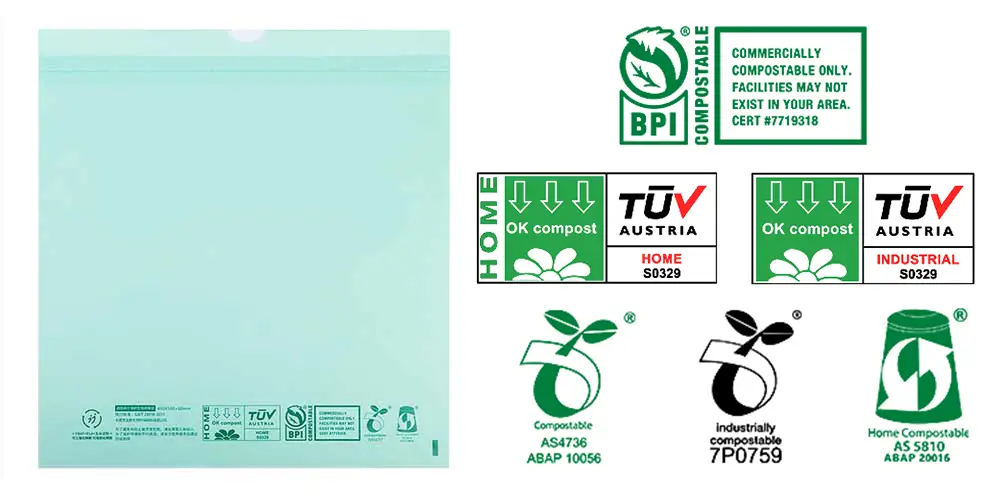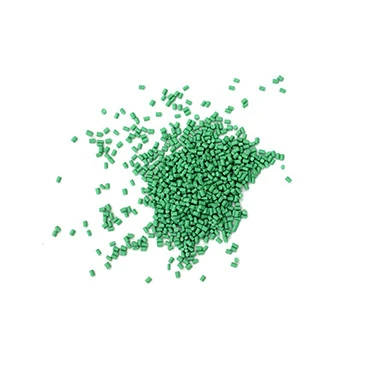In an era where environmental awareness is paramount, the shift towards sustainable solutions is crucial. Compostable bag certification serves as a pivotal measure in ensuring that the bags provided to consumers not only degrade efficiently but also meet rigorous environmental standards.
What is Compostable Bag Certification?
Compostable bag certification is a rigorous evaluation process designed to guarantee that products meet stringent environmental and biodegradation criteria. This comprehensive assessment includes laboratory testing to determine rates of decomposition, analysis of chemical residues, and evaluation of the product’s impact on soil ecosystems. Certification bodies employ expert scientists and engineers to establish and enforce these standards, ensuring consumer confidence in the product’s eco-friendly claims.
Key Certification Standards
To achieve compostable bag certification, products undergo comprehensive testing, including:
- Chemical analysis: Assessing heavy metal and fluorine content.
- Biodegradability: Measuring the rate of organic matter conversion.
- Disintegration: Evaluating the product’s breakdown in composting conditions.
- Ecotoxicity: Confirming minimal environmental impact.

Leading certification standards include ASTM D6400 (BPI), AS 5810 (ABA), AS 4736 (ABA), and EN 13432(Din Certco).
- ASTM D6400 (BPI): Primarily used in North America, this standard sets benchmarks for compostable plastics.
- AS 5810 (ABA) and AS 4736 (ABA): These Australian standards cover compostability for home and industrial environments, respectively.
- EN 13432 (Din Certco): This European standard is widely recognized for industrial compostable products.
By adhering to these standards, manufacturers can demonstrate the compostability of their products, contributing to waste reduction and circular economy principles.
What are the Benefits of Compostability Certification?
- Environmental Sustainability: Certified compostable bags are designed to decompose in compost settings, transforming into non-toxic organic matter. This significantly reduces their carbon footprint and promotes the cycle of ecological compared to traditional plastic bags.
- Reduction in Plastic Waste: By decomposing effectively, compostable materials do not contribute to the long-term accumulation of plastic waste, helping mitigate the global plastic pollution crisis.
- Consumer Confidence: Certification serves as a crucial safeguard, assuring consumers that the products they choose align with their sustainability values. By clearly displaying certification logos, codes, and detailed product information, manufacturers can empower consumers to make informed decisions.
- Market Appeal: For businesses, having certified compostable packaging enhances brand image and competitiveness in a market increasingly driven by sustainability. By demonstrating a commitment to environmental responsibility, companies can attract eco-conscious consumers, build customer loyalty, and differentiate themselves from competitors.
- Encourage Sustainable Practices: By setting rigorous standards for compostability, these certifications push industries to find and implement eco-friendly alternatives to traditional materials. This fosters a culture of sustainability, leading to the development of new, innovative products and processes that benefit both the environment and the economy.
How to Identify Certified Compostable Bags?
For purchasers who want to make a sustainable choice, identifying certified compostable bags is crucial. The following provides a guide on how to distinguish these compostable packaging options from the range available.
-
Look for the Right Labels
-
- Certification Logos: Reliable compostable bags will display logos from recognized certification bodies such as BPI (Biodegradable Products Institute) or TUV Austria.
- Certification Codes: Check for specific codes like AS 4736 or EN 13432, which indicate compliance with compostability standards.
-
Understand the Terminology
- Certified Compostable: This term signifies that the product has met specific environmental standards. Beware of misleading terms like “biodegradable” or “eco-friendly” without clear certifications.
-
Inspect the Details
- Logo Clarity: Authentic certification logos are clear and consistent. Be wary of blurry or inconsistent logos, which could indicate a counterfeit.
- Manufacturer Information: Reputable manufacturers will openly provide details about their certifications and compliance standards on packaging or their website.
-
Verify the Certifier
- Certification Body Credibility: Ensure the certification body is trustworthy and has a strong reputation for upholding rigorous standards.
By following these steps, you can confidently choose compostable bags that truly benefit the environment.
Responsibilities of Manufacturers in Producing Certified Compostable Bags
As a producer of compostable bags, we have a responsibility to continuously strive to contribute to sustainable development.
By integrating innovative technologies into our production processes, we aim to minimize waste, conserve energy, and reduce our overall environmental footprint. Additionally, we are dedicated to promoting circular economy principles by designing our bags for optimal recyclability or compostability at the end of their life cycle. This includes providing clear and accessible information to consumers about proper disposal methods to ensure maximum environmental benefit.
Ultimately, our goal is to contribute to a healthier planet by offering sustainable packaging solutions that not only meet consumer needs but also protect our natural resources for future generations.
Conclusion
Compostable bag certification is more than just a label, it’s a commitment to upholding rigorous environmental standards. This certification is essential for fostering consumer trust and encouraging businesses’ participation in environmentally responsible practices. As global communities become more eco-aware, such certifications play an ever-growing role in guiding consumer choices and promoting sustainability.
The above introduces the information related to compostable bag certification. For further details or inquiries about purchasing our products, please contact our expert team dedicated to providing high-quality sustainable packaging solutions aligned with your environmental goals.
As a certified compostable and biodegradable bag manufacturer, our products are crafted from modified resins derived from plant starches and compostable polymers which are easily consumed by microorganisms in the soil.
We offer a wide range of products: modified resins, masterbatches, shopping bags, trash bags, pet waste bags, mailing bags, produce bags, garment bags, gloves, aprons, zipper bags, plastic straws, kraft paper bags, etc.
All our products have obtained international authoritative certifications, such as EN13432 (Din Certco), OK Compost, OK Compost HOME (TUV Austria), ASTM D6400 (BPI), AS4736 and AS5810 (ABA). ShinHigh Bio is committed to integrating the research and development, production and sales of bioplastics, basically forming a closed-loop industrial chain and possessing unique core competitiveness.






